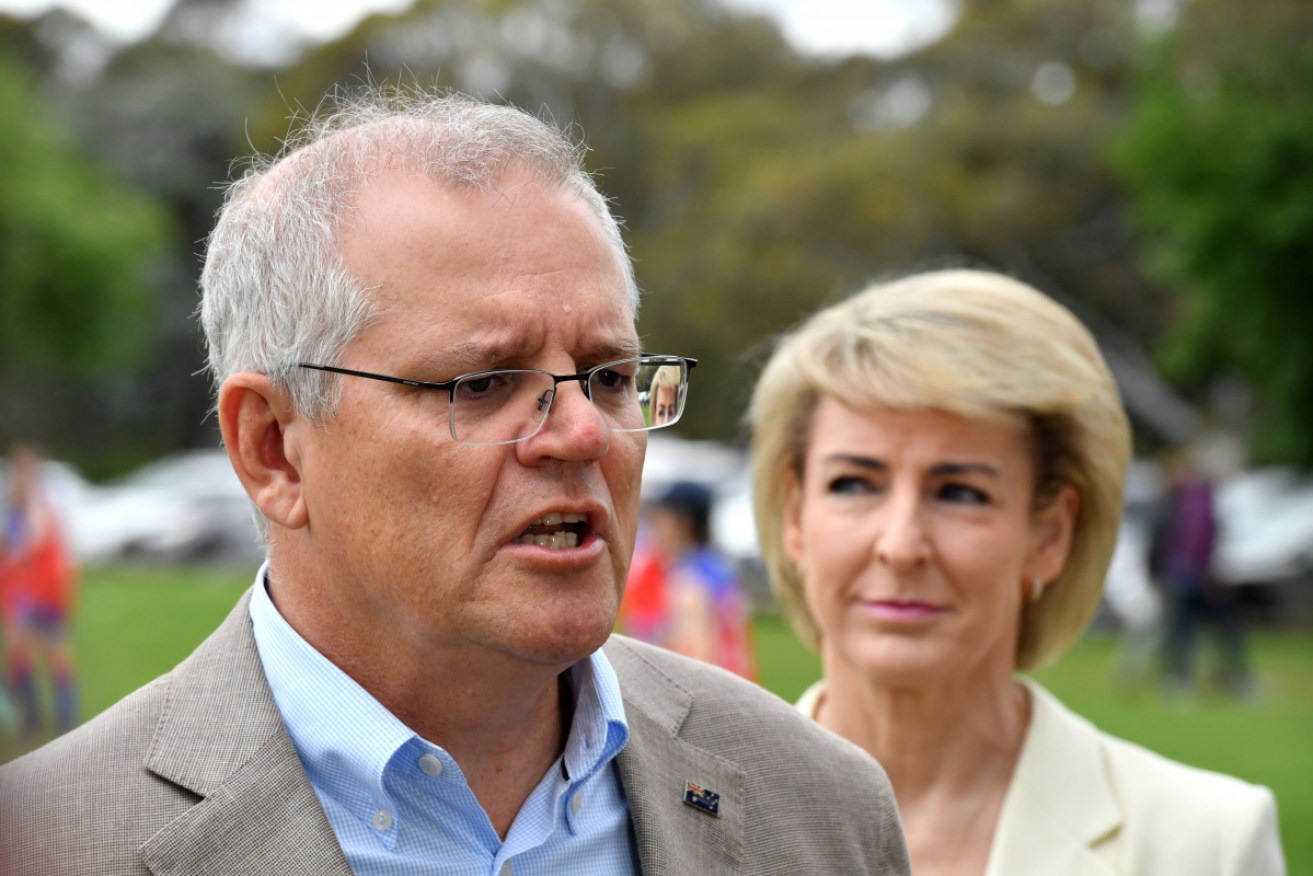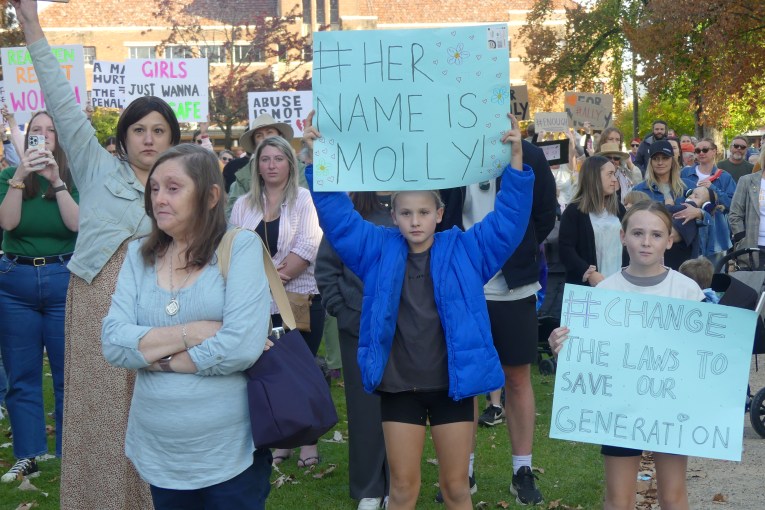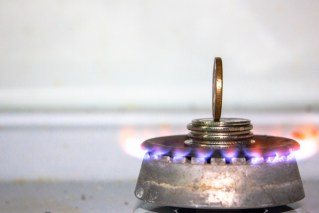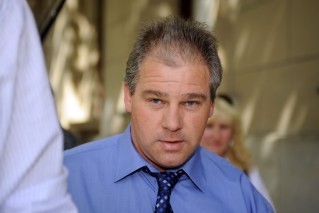‘Stunned’: Government reveals no plans for federal ICAC but blames Labor


The planned changes to defamation law have been painted as being about keeping children safe online from bullying and harassment. Tech experts say they don't believe it will come close to meeting that goal. Photo: AAP
The Coalition government has no plans to introduce a long-promised federal integrity commission and has blamed the delay on a lack of support from the Opposition – despite making no changes to a proposed model blasted by experts as the weakest in the country.
Labor leader Anthony Albanese said he was “stunned” by attempts from senior ministers on Sunday to blame the Opposition for the government’s refusal to introduce its integrity commission into Parliament, nearly 1100 days after first announcing it.
“Even for a government that always finds excuses, that never accepts responsibility, that’s a very big call,” Mr Albanese said.
It suggests Parliament’s final sitting week of the year threatens to be just as ugly as the last one, with Coalition backbenchers threatening further unrest and Labor livid over controversial voter ID laws that the government may try to ram through.
What is likely to remain unseen, however, is the government’s model for a federal integrity commission.
Attorney-General Michaelia Cash and her deputy Amanda Stoker had hinted in recent months that the Coalition may introduce its plan for a federal integrity commission into Parliament by the end of the year.
But with a number of hot-button issues already on the agenda – voter ID, the religious discrimination bill, and Sunday’s announcement of defamation law overhaul for social media – the government may already have its hands full.
Last week, Senator Cash said the government’s “priority” was the religious discrimination bill, and that Parliament would “return next year”.
Tweet from @InsidersABC
Social Services Minister Anne Ruston, appearing on the ABC’s Insiders on Sunday, said the government intended to proceed with the same exposure draft that it had previously circulated on its proposed Commonwealth Integrity Commission (CIC).
This is despite the Centre for Public Integrity accountability body saying it would be “the weakest watchdog in the country if implemented”, warning that it would “hide corruption, not expose it”.
The CPI is concerned the CIC would not hold public hearings for politicians, could only start its investigations in limited circumstances, and would not issue public reports.
NSW’s Independent Commission Against Corruption has all those powers.
Prime Minister Scott Morrison blasted ICAC’s investigation into former Premier (and potential federal Warringah candidate) Gladys Berejiklian as a “kangaroo court” last week.
Senator Ruston blamed Labor’s lack of support for the government’s failure to introduce its bill into Parliament for debate.
“The last thing we want to do is bring a bill into this place and then find out it won’t get through,” she told Insiders.

Mr Morrison and Senator Cash on Sunday. Photo: AAP
“It is a good balanced bill that balances out calling out corruption, but at the same time protecting the innocence of those until they’re proven guilty.”
In a press conference to discuss the government’s social media changes, Mr Morrison also pointed the finger at Labor for his government’s inaction.
“There was no support for our proposal from Labor or others,” he said, when asked if the bill would be introduced this week.
Mr Morrison announced the CIC plan on December 13, 2018, some 1081 days ago.
If the bill is not introduced until Parliament returns in 2022, likely around February, that would be close to 1150 days since its announcement.
The government’s CIC exposure draft has been out for public consultation for more than a year.
Senator Cash claimed the government “took on board all the relevant feedback” during that process, but wasn’t planning any changes.
“If Labor indicated they would support the bill, our situation would be very different,” she said.
But Labor’s shadow attorney-general Mark Dreyfus confirmed his party’s opposition to the government’s plan on Sunday, calling it a “fraud”.
“You don’t believe politicians should be accountable. You want to cover up corruption, not expose it,” he tweeted.
Stephen Charles QC, former judge of the Victorian Court of Appeal and a board member with the Centre for Public Integrity and the Accountability Round Table, said he was concerned that the government planned no changes to its proposal.
He claimed the government had “ignored” concerns raised by legal experts and integrity bodies over the gaps in the CIC proposal.
“This is just another broken promise by Scott Morrison,” Mr Charles told The New Daily.
“What they’ve produced, half of it is a law enforcement integrity body and the other half is useless. The only way it can be described is as a parliamentarian’s protection agency. It protects them from investigation.”
Mr Albanese, speaking in Melbourne, said he was “stunned” that the government blamed Labor for not putting its bill up for debate in Parliament.
“We now have a circumstance whereby, according to the Morrison government, the only way that something can be introduced into Parliament is if Labor supports it,” he said.
“If they want to take that attitude towards its logical conclusion, then they don’t deserve to be in government this week, let alone into a second decade, which is what they’ll be seeking going forward.”
Tweet from @AlboMP
A potential wildcard factor in Parliament this week is if other Coalition MPs follow the lead of Bridget Archer and cross the floor to support debating an integrity commission bill from independent Helen Haines.
Ms Archer’s support saw a motion attract majority support in the House of Representatives on Thursday, but it was ultimately unsuccessful due to parliamentary rules requiring an absolute majority of 76 of the 151 members – which Dr Haines’ bill did not get.
Dr Haines claimed there were “several more” Liberal MPs she believed were strongly in favour of debating her bill, and said she was “determined to continue”.
“I remain steadfastly determined. This is not over,” she said last week.
The CPI said Dr Haines’ bill shared features of Australia’s “strongest and most effective” integrity commissions in New South Wales and Queensland, including public hearings, public reporting, and starting its own investigations.
Dr Haines slammed an “undemocratic technicality” for her bill achieving majority support of members physically in the House, but failing to reach the absolute majority of 76 votes.
She last week called on the government to overturn that procedural rule, or just allow her bill to be debated.








